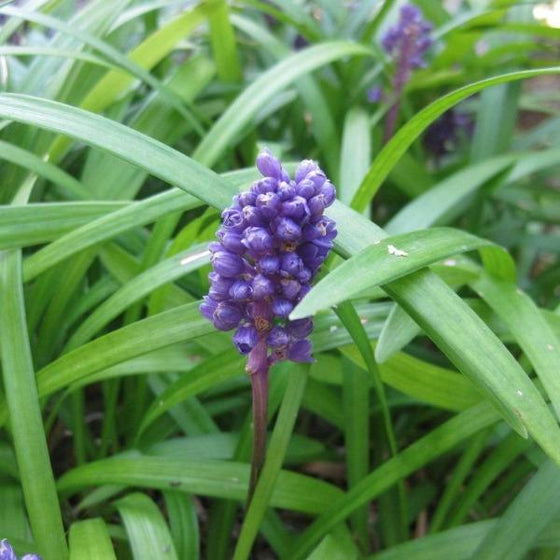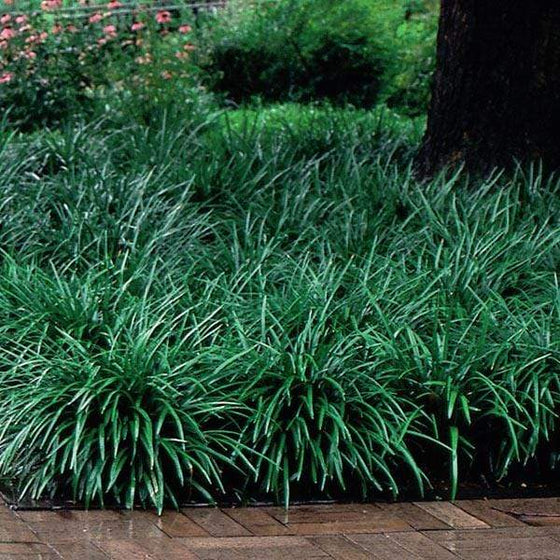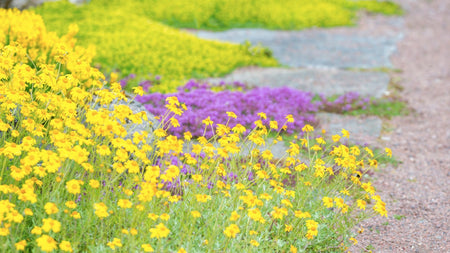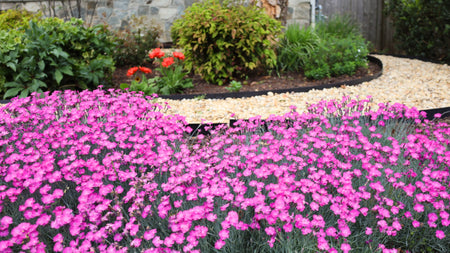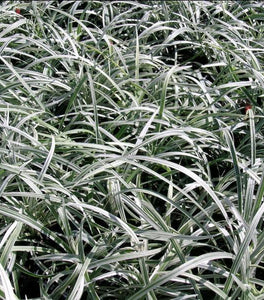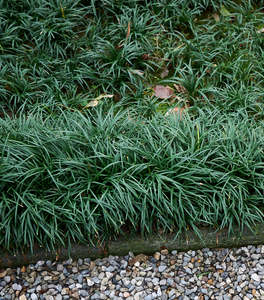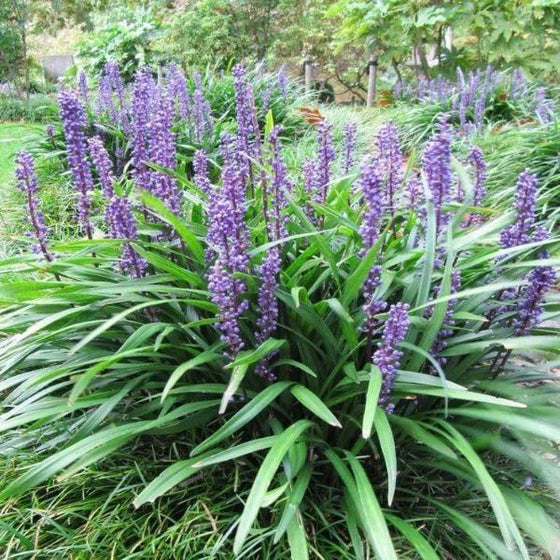
Images Depict Mature Plants
Reliable Evergreen Groundcover with Stunning Purple Blooms
Late-Summer Blooms and Year-Round Beauty
Liriope muscari ‘Big Blue’—commonly known as Big Blue Liriope or Big Blue Lilyturf—is a tried-and-true favorite for gardeners and landscapers alike. Its glossy, deep-green foliage forms arching mounds topped with vibrant lavender-blue flower spikes in late summer. After blooming, shiny black berries appear, adding color and texture well into fall.
Tough, Versatile, and Easy to Grow
Big Blue Liriope thrives in a wide range of conditions—from full sun to deep shade, and from clay to sandy soils. Growing 12–18 inches tall, it forms neat clumps that spread slowly by underground rhizomes, creating a dense, weed-suppressing mat of evergreen foliage.
Deer-Resistant and Drought-Tolerant
One of the most resilient perennials you can plant, Big Blue is naturally deer- and rabbit-resistant, drought-tolerant once established, and unaffected by pollution or salt. Its durability makes it perfect for urban landscapes, slopes, and challenging planting sites where other plants fail.
Perfect for Borders, Beds, and Mass Plantings
Whether edging walkways, filling large areas, or accenting foundation plantings, Big Blue Liriope delivers lasting beauty with minimal maintenance. Pair it with hostas, daylilies, and azaleas for elegant, layered texture and four-season appeal.

| Botanical Name: | Liriope muscari ‘Big Blue’ |
|---|---|
| Hardiness Zone: | 5-10 |
| Mature Height: | 12 to 18 Inches |
| Mature Width: | 18 to 24 Inches |
| Classification: | Perennial |
| Sunlight: | Full Sun to Partial Shade |
| Bloom Time / Color | Late Summer / Lavender-Blue |
| Soil Condition: | Moist, well-drained, adaptable soils |
| Water Require: | Moderate; drought-tolerant once established |
| Resistance: | Deer- and rabbit-resistant |
| Uses: | Edging, borders, groundcover, erosion control, containers |
How to Care for Big Blue Liriope
Before you buy a Big Blue Liriope, make sure to read about the care instructions that are required and recommended to keep this plant healthy and flourishing.
How should I plant Big Blue Liriope?
Choose a site with full sun to partial shade and well-drained soil. Dig a hole twice as wide and as deep as the root ball. Place the plant so the crown sits level with the soil surface, then backfill and water thoroughly. For dense coverage, space plants about 12 inches apart. For a more open border look, space 18 inches apart. Add mulch to conserve moisture but avoid covering the crown to prevent rot.
How often should I water Big Blue Liriope after planting?
Water deeply once or twice per week during the first growing season to help roots establish. Afterward, Big Blue Liriope becomes highly drought-tolerant and needs minimal watering. During prolonged dry spells, water when the top inch of soil feels dry. Mulching will help retain moisture and regulate temperature.
When should I fertilize Big Blue Liriope?
Feed in early spring with a slow-release, balanced fertilizer or organic compost to promote lush foliage and vibrant blooms. Avoid over-fertilizing—too much nitrogen can lead to excess leaf growth and fewer flowers. A midseason compost top-dressing is often sufficient.

When and how should I prune Big Blue Liriope?
Cut back old foliage in late winter or very early spring before new shoots emerge. Trim to about 3 inches above the soil for a tidy, refreshed look. Annual pruning prevents thatch buildup and keeps the clumps neat and vigorous through the growing season.

